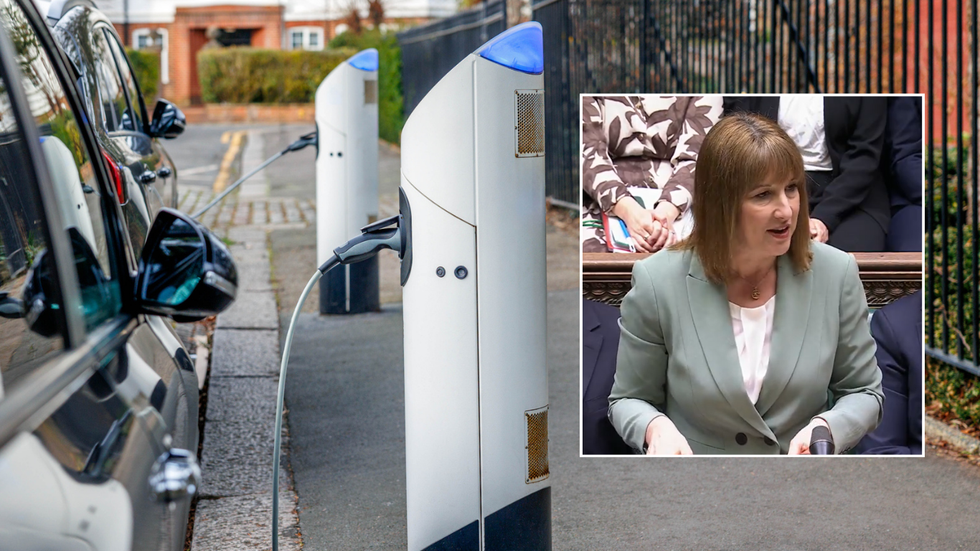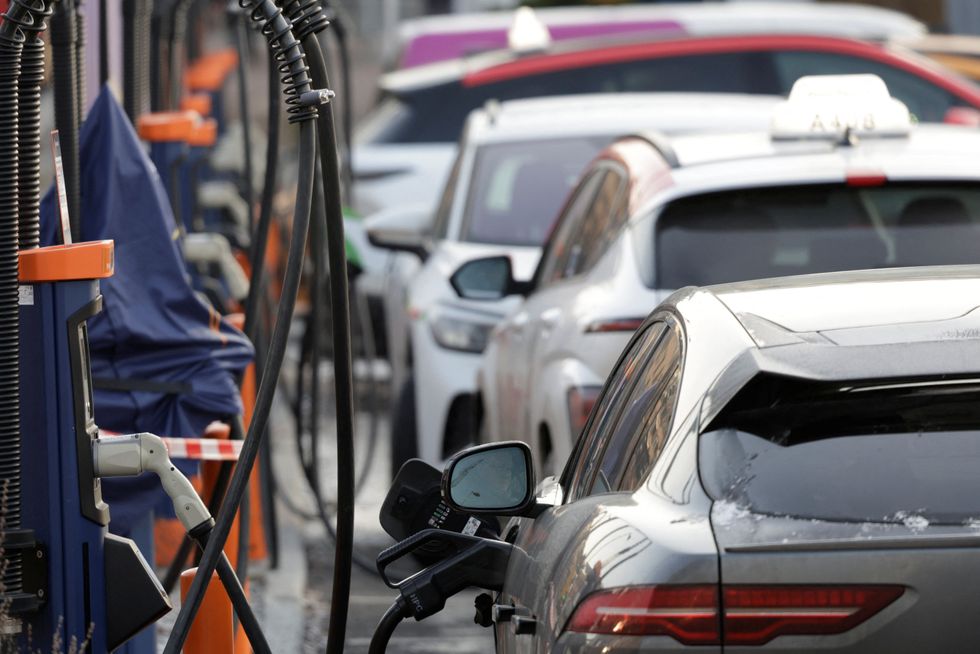Rachel Reeves has been urged to address a major car problem at the Autumn Budget in a desperate bid to keep driving affordable for millions.
It follows a letter sent by industry voice ChargeUK to the Chancellor ahead of the Budget, demanding further support for electric car adoption across the UK.
The letter called on the Chancellor to announce a range of measures at the Budget, including new funding to help roll out more public electric car chargers.
A lack of accessible chargers and price point have remained key barriers for petrol and diesel drivers making the switch to electric cars, with the hope that reducing EV charging costs could spark a mindset change.
The letter from ChargeUK CEO Vicky Read detailed: “I urge you to take decisive action in the upcoming budget to promote the widespread rollout of public EV charging and keep charging affordable for all drivers.
“The UK’s transition to zero emission vehicles is a shared national priority – creating jobs and growth in the automotive, charging and wider e-mobility sectors, and helping households to save money while supporting net zero.”
The organisation also called on the Chancellor to tackle business rates on charging bays, which are set to increase next year.
According to the Valuation Office Agency, it plans to apply business rates to charging bays for the first time from April 2026, which would impose £100million in annual costs on the sector.

“This would jeopardise private investment, risk a slowdown in deployment and site closures, particularly outside the southeast, and push up driver prices,” Ms Read warned.
ChargeUK estimated that the move would mean that EV operators would need to raise charging costs by between 5p to 10.5p per kWh to compensate for business rates.
This would add an extra £315 per year for drivers and wipe out the financial benefit of band two of the Government’s Electric Car Grant over five years.
Another measure highlighted by ChargeUK includes high VAT rates on public charging points. They attract a 20 per cent VAT rate compared to five per cent for home chargers.
LATEST DEVELOPMENTS
- Major car brand debuts revolutionary AI-powered driver assistance tech with Google Maps
- Martin Lewis provides car finance update as Britons could be ‘paid out eight months quicker’
- Electric car market soars with impressive sales as interest in petrol and diesel vehicles ‘collapses’
“This unfair disparity penalises the one in three households without access to private driveways, often lower-income and urban families,” the expert stated.
Calls to change VAT rates have been growing all year, with the introduction of the Exemption from Value Added Tax (Public Electric Vehicle Charging Points) Bill, which hopes to show how serious the issue is for drivers.
The bill introduced last year by Sir Christopher Chope, Conservative MP for Christchurch, is set to have its second reading in January.
The Electric Vehicle Association England warned that without action taken on pricing disparities and infrastructure accessibility, EV progression will halt.

On top of high VAT rates, drivers are also subject to surging standing charges in energy bills, which have increased by 462 per cent since 2021, with further increases anticipated next year.
The organisation warned that this has contributed to a 38 per cent rise in average charging prices for drivers throughout the UK.
The letter detailed how the Budget could create an opportunity to announce a “pro-growth, pro-consumer package of measures that addresses these cost burdens”.
The letter concluded: “Taken together, these actions would deliver a tangible win for drivers by ensuring charging remains widely available and affordable, and provide the stable and supportive fiscal environment needed to safeguard growth and investment in one of the UK’s key infrastructure sectors.”
Our Standards:
The GB News Editorial Charter







Follow